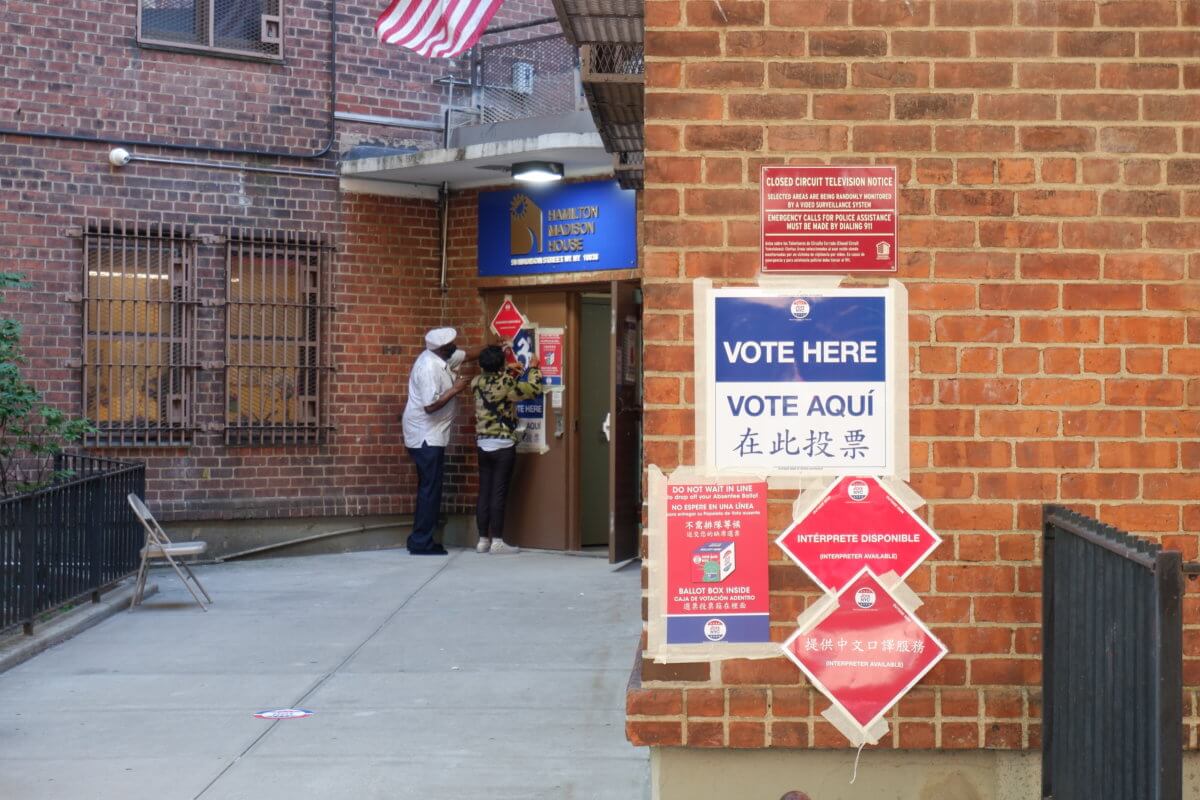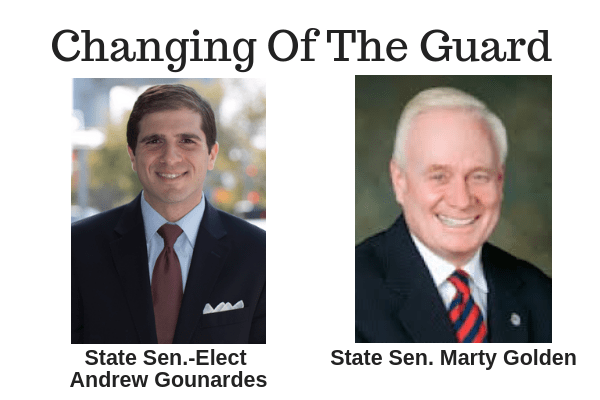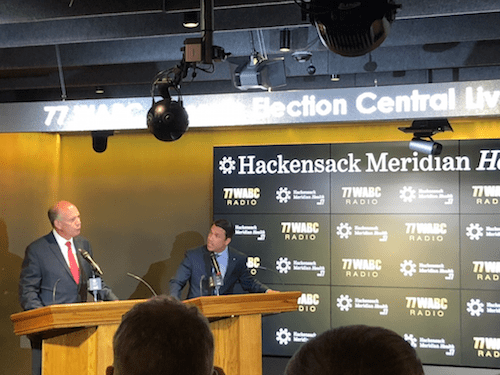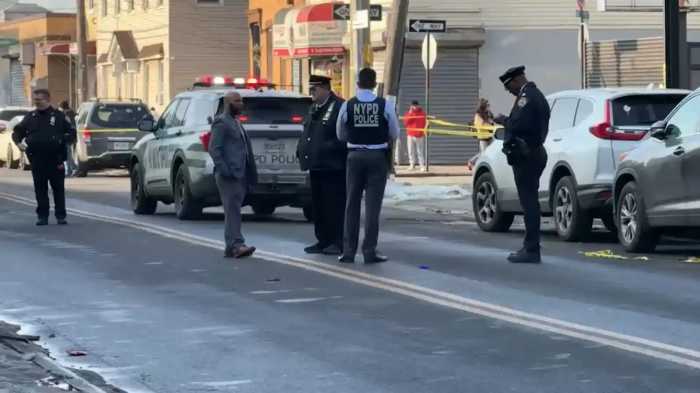The state Court of Appeals decision overturning Congressional and state Senate district maps drawn by the Democratic-controlled state legislature is the gift that just keeps on giving.
According to a published report by Gothamist’s Brigid Bergin, the court decision that threw out the legislature drawn lines also set up a one-time scenario where voters can change their party registration up until – and even on – Election Day. That effectively makes the Aug. 23 election very similar to an open primary, where registered members of any party can vote for candidates in another party.
When the state’s highest court split this year’s primary in two – with a June 28 contest for state-wide offices and Assembly and an August election for Congress and state Senate – it created a loophole in state election law that allows registered Democrats and Republicans to change their party and unaffiliated voters to register up until Aug. 23. They can also change their registration at the voting booth on Election Day via affidavit ballot.
Since state primaries were moved from September to June by a 2019 referendum, the deadline to change one’s voter registration had been Feb. 14 – four months before the election.
The loophole could give voters living in districts with non-competitive primaries in their parties a chance to weigh-in on more competitive contests on the other side of the aisle. It could also give partisan voters hoping to tip a general election in their party’s favor the chance to cast a ballot for someone they see as a weaker contender from the opposing party – giving their candidate a better shot at coming out on top.
For instance, a Democrat voting in a swing district without a competitive primary in their party, could vote for a Republican aligned with former President Donald Trump in hopes that candidate will turn off more moderate GOP voters – potentially handing the race over to the Democrat in November.
Vice versa, a Republican voter in the same district could vote for a far-left progressive Democrat who might have a more difficult time getting moderate and independent voter in the general election, thus helping the Republican succeed.
Both schemes, of course, could easily blow up in the faces of such voters, as they could wind up inadvertently helping to send to Congress or Albany a far-left or far-right candidate who doesn’t reflect their views.
At the same time, the glitch in the law could change the way candidates campaign, perhaps leading them to try and appeal to voters from the opposing party to give themselves an edge over their opponents.
In a statement to PoliticsNY, it wasn’t entirely clear whether state Democratic Party Chair Jay Jacobs said the party supports the state Board of Elections’ (BOE) “efforts” to stop people from switching their party registration late in the game – although it wasn’t clear what efforts he was referring to.
“We support the State Board of Elections’ (BOE) efforts to stop late Party switching and are discussing possible responses with counsel if needed,” said Chairman Jay S. Jacobs. “These elections are some of the most consequential in history, and our main focus as a party is to get as many voters to the polls as possible.”
On the Republican side, State GOP spokesperson Jessica Proud said the party isn’t pleased by the revelation that August will function like an open primary.
“We have long been opposed to open primaries and this loophole would essentially create one,” Proud said.
A source close to the state GOP said the party is working on finding a solution to this, as it wasn’t anticipated and could create issues for boards of election around the state.
New York Working Families Party (NYWFP) spokesperson Ravi Mangla said the NYWFP, which typically endorses more progressive candidates in the Democratic primary, doesn’t support party switching even with the rule change.
“The WFP is made up of registrants who are stewards of our party and also values-aligned voters who support our endorsed candidates regardless of their party registration,” Mangla said. “Despite the odd electoral loophole this cycle, as a rule we don’t encourage party switching for the sake of voting in a specific primary.”










